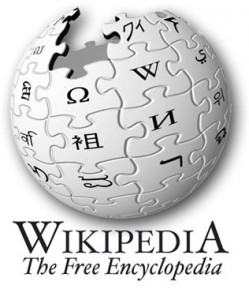 Recently I wrote about a Wikipedia issue based on the best information I had at the time. I know better than to rely upon sources that are irreputable, but I clearly made a mistake relying upon the reporting of the Guardian. Normally, I would check the actual source of the information, but I find Wikipedia’s management machinations to be difficult to find and parse. In short, I came to the wrong conclusion, and this post is my attempt to set things right. In doing so, I am quoting heavily from a message from the Wikimedia Foundation:
Recently I wrote about a Wikipedia issue based on the best information I had at the time. I know better than to rely upon sources that are irreputable, but I clearly made a mistake relying upon the reporting of the Guardian. Normally, I would check the actual source of the information, but I find Wikipedia’s management machinations to be difficult to find and parse. In short, I came to the wrong conclusion, and this post is my attempt to set things right. In doing so, I am quoting heavily from a message from the Wikimedia Foundation:Last night [some days ago now], the Arbitration Committee for English Wikipedia reached a final decision on the case: https://en.wikipedia.org/wiki/Wikipedia:Arbitration/Requests/Case/GamerGate#Final_decision. The Committee chose to issue one complete site ban for a male editor, citing a pattern of disruptive behavior that included more than 20 lesser sanctions since 2006. No other Wikipedia editors received site-wide bans.
We can confirm that in addition to a single site-wide ban, the Committee issued and endorsed nearly 150 warnings, sanctions, or topic bans to other editors from various sides of the case. We can clarify that of the eleven Committee-issued topic bans, only one was applied to an editor who identifies as female. All of the sanctioned editors have the right to appeal in the future: over the years, the Committee has approved appeals if they are found to no longer be necessary.
Some reporting portrayed this case as a referendum on Gamergate itself, or as a purge of women or feminist voices from Wikipedia. That mischaracterizes the case, the role of the volunteer Arbitration Committee, and the nature of their findings.
The Committee does not consider the content of articles, it only focuses on the behavior of editors. This decision was also not a purge. Only one user has been removed from Wikipedia. Finally, it is not intended as a referendum on Gamergate — what is right, what is wrong, and its place in broader discourse — and should not be understood that way. That discussion may be necessary, but it is better suited for another forum.
Wikipedia is an encyclopedia. It is also the largest free knowledge resource in human history — and it is written by people from all over the world, often from very different backgrounds, who may hold differing points of view. This is made possible thanks to a fundamental principle of mutual respect: respectful discourse, and respect for difference and diversity.
The Wikimedia Foundation offers resources for programs and outreach with our partners across the global Wikimedia movement, and engage people that have been underrepresented in traditional encyclopedias. These include women, people of color, people from the Global South, immigrant communities, and members of the LGBTQ community. They are invaluable contributors to our community and partners in our mission.
For Wikipedia to represent the sum of all knowledge, it has to be a place where people can collaborate and disagree constructively even on difficult topics. It has to be a place that is welcoming for all voices. This is essential to ensuring people are free to focus on being creative and constructive, and contributing to this remarkable collective human achievement.
For more on our stance on this issue, please see a blog post we released this week: https://blog.wikimedia.org/2015/01/27/civility-wikipedia-gamergate/.
I am sorry for jumping the gun on this, and I am deeply sorry for mischaracterizing the situation. I hope that this post can help to rectify any damage I may have unwittingly caused. Mea culpa.

